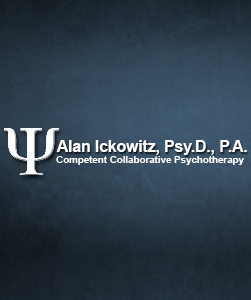Depression and Feeling Out of Control
As posted earlier, we all tend to find the experience of not being in control of our lives as an aversive and painful one. One source of feeling helpless and out of control is when we experience intense emotions. Intuitively, we all know that we are not in control of our emotional experiences. Strong feelings of any type, be they pleasurable (joy, excitement, satisfaction) or painful (anxiety, sadness, guilt) are experienced as happening ‘to’ us and this can frighten us (it can also excite us to feel that we are not in control of our emotions and we may go to great lengths to seek those emotional experiences but that is another discussion). This leaves us vulnerable to having internal emotional conflicts that result in suffering of one kind or another which can be attributed to the mistaken notion that by our will alone, we can choose to ‘not feel’ a painful emotion or to not feel pleasure from something we have judged to be wrong. This is a common cause or exacerbations of depression because we feel trapped by our own emotional experience that we think we should be able to stop or to change but cannot. In my Tampa practice, I work with clients suffering from clinical depression who struggle with this set of dynamics and help them overcome this particular challenge. In their psychotherapy, clients begin to have an experience of gaining some control over their tendency to condemn themselves for having emotional experience they wish they did not have. Clients learn by experience in their relationship with me how to tolerate having those emotional experiences, including acknowledging their lack of control when having them. Through their shared experience with me, clients gain the experience of being more compassionate towards themselves for having intense emotions and that it can be safe to feel that they are not in control when having them. We are all accountable for our actions and our behaviors and there is a huge difference between judging ourselves for how we behave in response to our emotions vs. judging ourselves for how we feel when we have that emotional experience.

